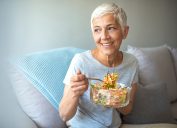
Nutrition is very important for a healthy and independent life as we get older. “The definition of healthy eating does change a little as we age,” says the National Council on Aging. “For example, as we grow older, our metabolism slows down, so we need fewer calories than before. Our body also needs more of certain nutrients. That means it’s more important than ever to choose foods that give us the best nutritional value.” Here are 7 nutritional tips every senior should know.
1
Make It a Social Occasion

Mealtimes should be spent with friends and family whenever possible. “Friends, family and gathering socially with our community makes mealtime more enjoyable and is just as important for our mental health as what we eat is for our bodies,” geriatric specialist Ami Hall, DO, tells the Cleveland Clinic. “Invite others to join you, share stories and connect while you eat.”
2
Avoid Trans Fats
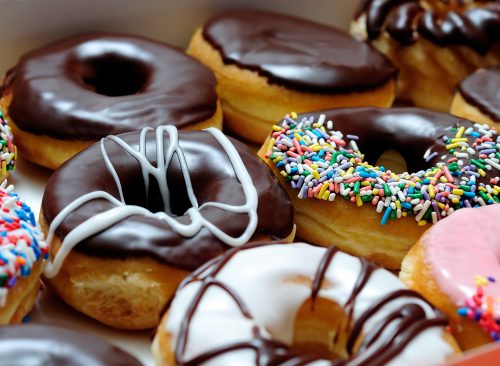
Be careful about the amount of trans and saturated fats you consume. “Pick foods that are low in cholesterol and fat,” says MedlinePlus. “You especially want to try to avoid saturated and trans fats. Saturated fats are usually fats that come from animals. Trans fats are processed fats in stick margarine and vegetable shortening. You may find them in some store-bought baked goods and fried foods at some fast-food restaurants.”
3
Fiber and Healthy Fats
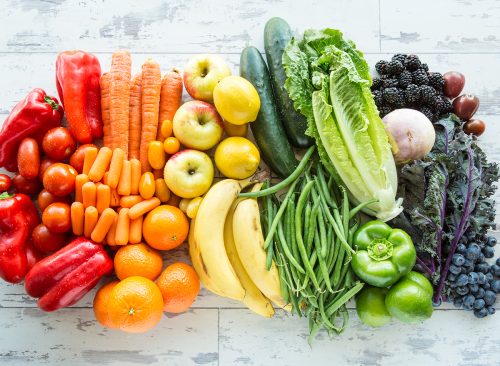
Enjoy a diet rich in fiber and healthy fats. “Add fiber to meals with food like whole grains, and raw fruits and vegetables,” says the Cleveland Clinic. “Reduce your cholesterol and fat intake and make smarter choices by enjoying or preparing food with healthy fats, which include olive oil, avocados, salmon and walnuts.”
4
Eat Plenty of Protein
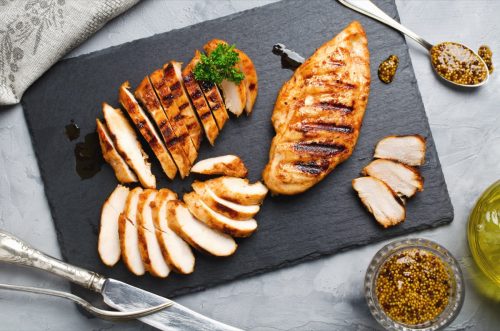
Protein is essential for muscle support. “Eating enough protein helps prevent the loss of lean muscle mass,” Dana DeSilva, PhD, RD, and LT Dennis Anderson-Villaluz, MBA, RD, LDN, FAND, tell the Office of Disease Prevention and Health Promotion. “But older adults often eat too little protein — especially adults ages 71 and older. Since most older adults are meeting recommendations for meats, poultry, and eggs, it’s important to remind them that seafood, dairy and fortified soy alternatives, beans, peas, and lentils are great sources of protein. These protein sources also provide additional nutrients, such as calcium, vitamin D, vitamin B12, and fiber.”
5
Sodium and White Foods
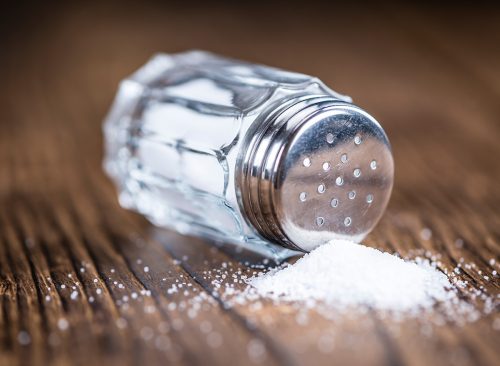
Be mindful of sodium in your food, to help keep blood pressure at a healthy level. “Season dishes with garlic, herbs and other spices,” says the Cleveland Clinic. “Choose foods that are low in sodium or have no added salt. Limit ‘white foods’: That includes things like white bread, rice and potatoes, which don’t provide much in terms of long-term nutritional value.”
6
Vitamin B12
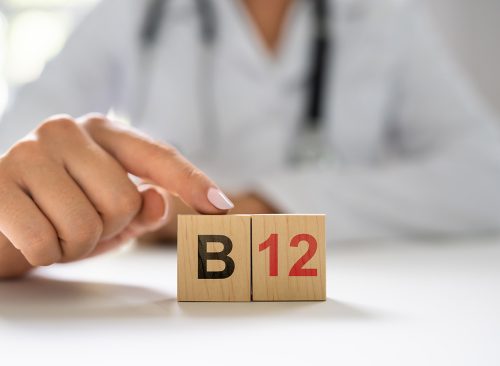
Low vitamin B12 levels have been linked to an increased chance of bone fracture. “The ability to absorb vitamin B12 can decrease with age and with the use of certain medicines,” say Anderson-Villaluz and Desilva. “Health professionals can help older individuals get enough vitamin B12 by ensuring that they’re consuming enough through foods, such as breakfast cereals. Older adults should talk with their health care provider about the use of dietary supplements to increase vitamin B12 intake.”
7
Eat Whole Foods

Whole foods are best no matter what age you are. “The healthiest foods are whole foods,” says the National Council on Aging. “These are often found on the perimeter of the grocery store in the produce, meat, and dairy sections. When you do eat processed foods like chips and baked goods, be a smart shopper! Read the labels to find items that are lower in fat, added sugars, and sodium.”

